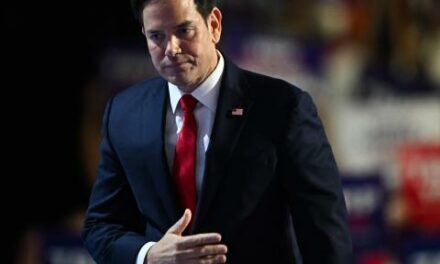We support our Publishers and Content Creators. You can view this story on their website by CLICKING HERE.

Supporters of the four initiatives on Tuesday’s general election ballot in Washington are regrouping after three of the four went down to defeat.
One the measures, I-2066, to ensure natural gas remains an energy choice is leading by about 75,000 votes, but with more than 780,000 ballots not yet to be added to the statewide total, neither side is declaring victory or defeat.
Washington State Republican Party Chair Jim Walsh, who sponsored the initiatives, told The Center Square on Thursday that state Republicans believe ballot statements on the initiatives worked to their disadvantage.
“The biggest issue is the weaponization of the public investment impact disclosure statements on the ballot,” Walsh said. “Those have been weaponized by the state Attorney General’s Office and were used as a confounding political tactic to confuse voters about how to vote on the initiatives. These PIIDs are a major public policy problem.”
State statute reads, “The attorney general must prepare a public investment impact disclosure for any ballot measure that repeals, levies, or modifies any tax or fee.”
As previously reported by The Center Square, the state GOP sued, initially in Thurston County Superior Court and then before the state Supreme Court, to prevent PIIDs from being printed on the ballot, arguing their creation by the office of Attorney General Bob Ferguson was biased against the measures as Ferguson had publicly voiced his opposition to the initiatives.
“We sued to try and prevent their use, and that lawsuit went to the state Supreme Court, which ruled on a technicality saying we had mislabeled the lawsuit,” Walsh said. “They said it was the wrong way to phrase our requested remedy, so it was a complete technicality and a very rare thing for a court to use as a basis for denying a motion.”
Walsh said the fight isn’t over.
“They [state Supreme Court] did say if we relabel our requested remedy, they will reconsider so we have to start over again and relabel the lawsuit,” Walsh noted. “I’m talking with our counsel now about the timing and structure and best way to refile.”
Walsh said news reports since Tuesday have suggested it was wording of the initiatives themselves that may have caused confusion, but told The Center Square that was not the problem.
“It was not the wording of the initiative that was confusing,” he said. “It was the wording of the public investment impact disclosure statement on the ballot that was confusing.”
Walsh said some perspective is due on gauging success of the Let’s Go Washington initiative effort.
“Of the seven initiatives we supported, four became law,” said Walsh, who conceded that was based on the assumption that I-2066 ends up passing.
Walsh was referring to three measures to the Legislature that lawmakers approved during the 2024 session. Those concerned a parents’ bill of rights, police pursuits, and a measure that prohibits state and local governments from enacting a personal income tax.
Heywood, the man behind Let’s Go Washington, told The Center Square he’s been inspired by the number of people willing to get involved in the effort, knowing it’s an uphill battle in Washington.
“There’s a lot of people willing to spend an enormous amount of their own personal time and money to fight for what they consider matters of freedom, and I think that’s really cool that we have a state where you can do that,” he said.
As of Thursday afternoon, per the Secretary of State’s Office, Initiative 2117 to repeal the Climate Commitment Act was trailing 62% to 38%. Initiative 2109 to repeal the capital gains tax was being rejected by 63% of voters to 37% approval. Initiative 2124 to make the WA Cares long-term care program optional was being defeated by a margin of 55% to 44%.
Let’s Go Washington and Walsh have not announced plans to reattempt any of the failed initiatives in the future.

 Conservative
Conservative  Search
Search Trending
Trending Current News
Current News 





